Plymouth shootings: Gunman's father tried to stop shotgun licence
- Published
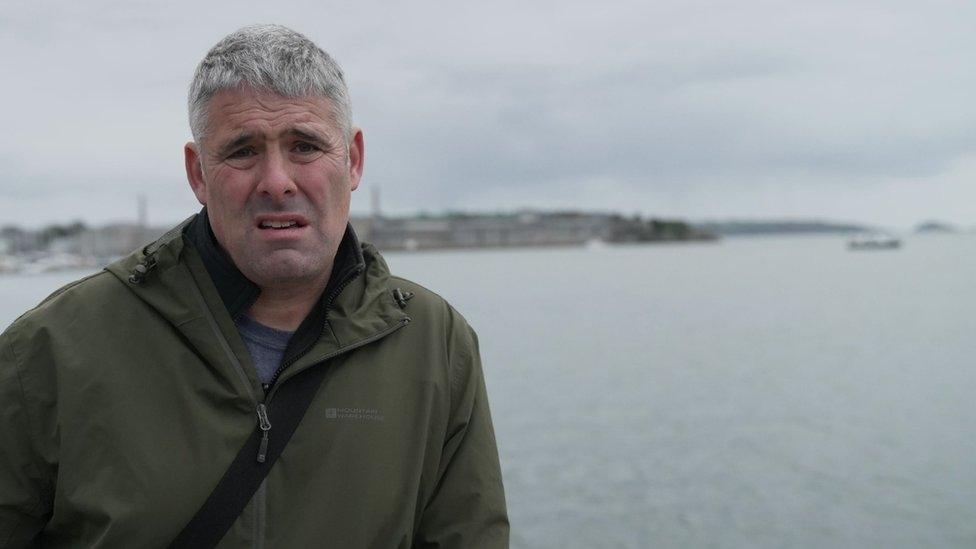
Mark Davison said he called the police to tell them his son should not be approved for a shotgun licence
The father of a man who shot and killed five people told an inquest he called the police in an attempt to stop his son from getting a shotgun licence.
Jake Davison, 22, killed five people in the Keyham area of Plymouth in 2021.
Mark Davison said he believed his son should not have had a shotgun because of his autism and the "volatile" relationship he had with his mother.
Davison killed his mother Maxine, 51, after a row at their home on the evening of 12 August.
He then left the house on Biddick Drive and killed three-year-old Sophie Martyn, her father, Lee, 43, Stephen Washington, 59, and Kate Shepherd, 66, before turning his legally-held pump-action shotgun on himself.
Giving evidence at the inquests into the deaths of the victims at Exeter Racecourse, his father described seeing holes that had been punched in walls and doors at their house, from altercations with his mother.
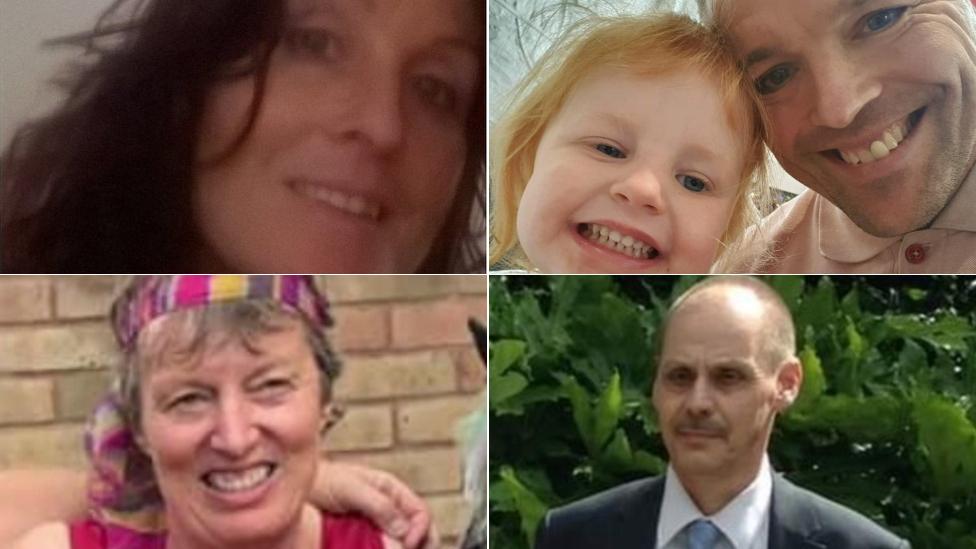
Jake Davison killed five people and injured two others during a mass shooting in Plymouth in August 2021
Mr Davison said his contact with his son had diminished in the 12 to 18 months prior to the shootings and he had become "more and more distant".
He said he had been unaware of his son's involvement in incel communities online and the fact he had never had a girlfriend, but thought his son was shy and put some of his behaviour down to his autism.
He said: "I'm not the only absent parent in the world and their son doesn't go out and do that."
Mr Davison said he received a call from his daughter, telling him Jake had applied for a shotgun licence.
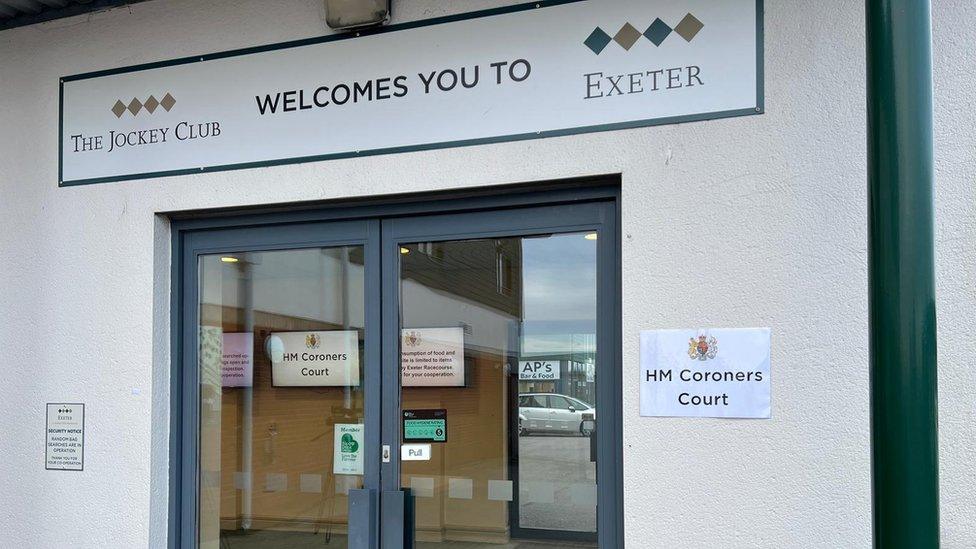
The inquests are being held at Exeter Racecourse
He said he told her Davison would not be able to get one because he was autistic and said they had argued about it.
"I said 'what's going to happen if he had an argument with his mum?'," Mr Davison said.
"I knew that stuff went on in that house."
Mr Davison said he rang Charles Cross police station in Plymouth to warn them Davison should not get a shotgun, telling them he lived in a volatile household and was autistic.
"I thought that would be enough," he added.
"All I know is I tried my best to stop Jake getting a shotgun."
Bridget Dolan KC, who was asking questions on behalf of the Plymouth coroner, queried the timing and number of the calls.
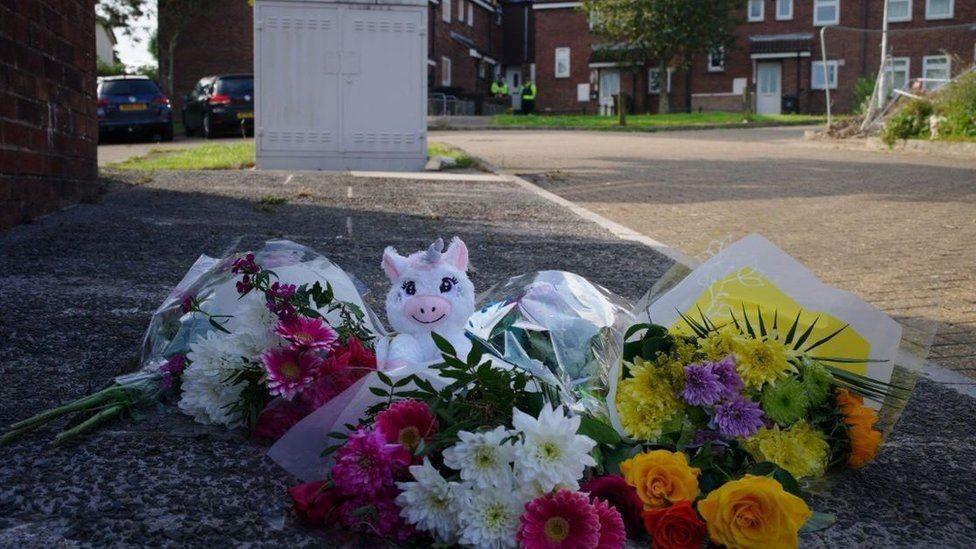
Tributes were left around Keyham in the aftermath of the shootings
Mr Davison, who became angry and distressed during the questioning, said he made two or three calls in 2017 - at the time his son first applied for the licence.
Davison applied for a shotgun certificate in July 2017, with one issued by Devon and Cornwall Police in January 2018 which was valid for five years.
The force revoked Davison's licence and seized his shotgun in 2020, but returned them in 2021 - weeks before the killings.
Earlier in the inquest, it emerged that Davison had declared his autism on his application and gave consent for his GP to share information with police about his medical history.
Mark Davison described how his son took a keen interest in guns and knew he was looking at them online.
"The boy shouldn't have had the shotgun and it was me who tried to stop it," he said.
"You messed up. I'm only saying this for future reference. It won't bring anybody back - it won't change anything."
Mr Davison argued there should be a log of his calls.
The inquest heard an Independent Office for Police Conduct investigator looked for a record of the calls but none was found.
In a report, the investigator listed a number of reasons why such a record might either not have been logged or could not have been found.
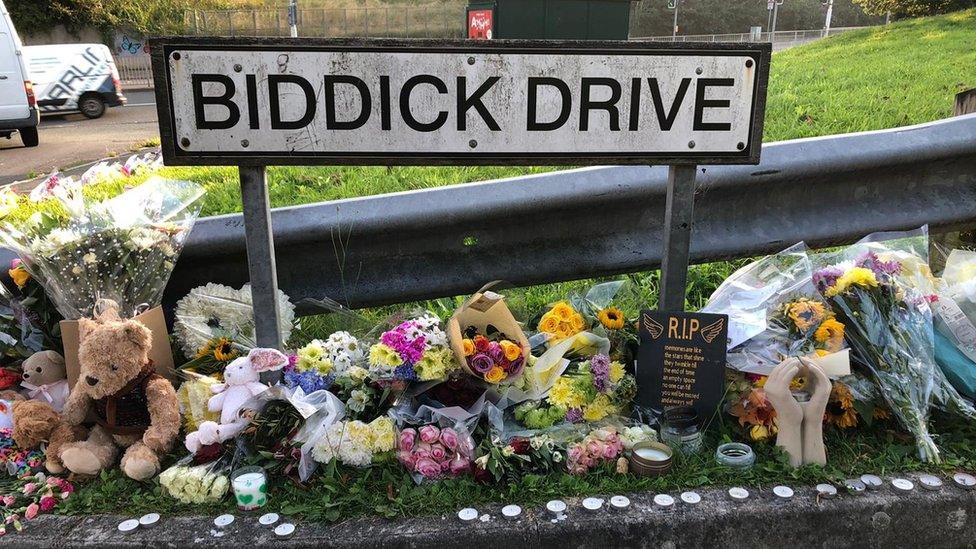
Maxine Davison was Jake Davison's first victim and was killed at her property on Biddick Drive
The inquest also heard a peer review of Devon and Cornwall Police's firearms licensing unit (FLU) carried out after the Keyham shootings found "serious concerns" about decision making.
Jurors heard about a case named 'L' by the Durham force, which carried out the review, which said it "raised several concerns "including how the initial incident, arrest and conviction were all missed and L remained in possession of guns".
The review went on: "On becoming aware of the incidents someone within the FLU was still unsure as to whether the circumstances warranted the revocation of the holder's shotgun licence.
"The revocation still took a further 10 weeks to be implemented."
The report went on to say, there had been information about violence, assaulting police and drugs offences that would have been "sufficient to preclude" L from being issued a licence in the first place.
It said a "seemingly sensible" decision by a firearms enquiry officer (FEO) not to issue a licence was overruled by a FLU manager.
Dominic Adamson, who represents the Martyn, Washington and Shepherd families, said the review raised significant concerns about what happened when certificate holders became involved in an incident, including a system where FEOs made decisions without scrutiny or oversight.
Supt Brent Davison, who was brought in to lead the department in October 2021, said he did not know how long that system had been in place but the force had decided to review all certificates issued in the past five years.
He said the team was "overstretched and perhaps the system is not perfect".
Mr Adamson said: "So you are saying that lack of resources resulted in a flawed system and that persisted for five years?"
Supt Davison agreed.
The inquest hearing continues.

Follow BBC News South West on Twitter, external, Facebook, external and Instagram, external. Send your story ideas to spotlight@bbc.co.uk, external.
Related topics
- Published23 January 2023

- Published20 January 2023

- Published19 January 2023

- Published18 January 2023

- Published17 January 2023
